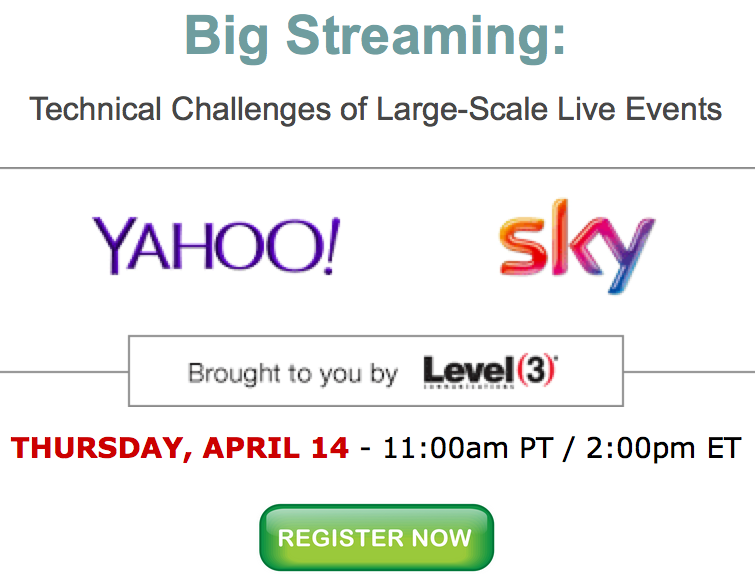Beamr, the company that claims to reduce video file sizes by up to 50%, has announced the acquisition of Vanguard Video, the venerable encoding technology and solutions company. Beamr is not commenting on the deal size, only stating that they raised another funding round of $15M led by Disruptive Growth, with participation from their existing VC’s Marker, LLC and Eric Schmidt’s Innovation Endeavors fund.
The transaction strengthens Beamr’s place in the ecosystem, complementing its media optimization solutions with core video encoding functions. The fit of Beamr with their image science capabilities, and Vanguard as an expert in video encoding, makes sense. Beamr Video works as a full reference optimization process, requiring a first pass encode before the optimization step can be completed. So it is no surprise the company realized an opportunity to bring to market a whole solution, combining the first pass encoding step with the second pass optimization step.
For those not familiar with Vanguard Video, I’ve been watching them for years. Netflix, IBM, Imagine Communications, Intel, Microsoft and dozens of leaders in the space all leverage their encoding technologies and SDKs to build commercial products, and power internal encoding operations. The company offers comprehensive video codec solutions and possesses deep domain knowledge and expertise in the areas of H.264 and HEVC video encoding. Beamr feels that with an encoder as part of their solution, they will now be able deliver on the holy grail of ensuring the absolute highest quality at the lowest bitrates, which equals no more wasted bits.
The Beamr quality measure operates in a closed loop; meaning artifacts are never introduced during the optimization process. This approach represents the purest form of content adaptive optimization, which is getting a lot of attention these days from Netflix, YouTube and others who are breaking away from preset recipes to follow a content adaptive methodology. Marrying Beamr Video with a best of breed encoder like Vanguard is an excellent way to ensure the highest quality for a given bitrate.
Vanguard Video is respected as a leading codec technology vendor and their customers are some of the biggest names in media & entertainment. At Streaming Media East 2014, Netflix gave the company a strong endorsement for the work they are doing in the area of HEVC and 4k. There is enough uniqueness in Beamr and Vanguard Video’s solutions and technology that we may be witnessing the formation of an up and coming encoding products company where consolidation in the encoding space, could spell opportunity for Beamr. Networks are under constant pressure from the massive growth in streaming video. Demand for higher resolutions and better quality is exasperating the congestion that plagues ISP’s, mobile networks and CDN’s. Consumers are no longer as forgiving to subpar video quality as they once were.
The question of how to reliably trade-off video quality with constraints of the network, is one current encoder state of the art cannot address. Though HEVC shows nice signs of promise, Beamr reports that in addition to the benefits of HEVC over AVC, Beamr Video cuts the size of HEVC files by an average of 30%. As proof, M-GO demonstrated 4k HEVC files in the Technicolor booth at CES 2015 and NAB 2015; whereby using Beamr Video, they streamed the equivalent quality of 15 Mbps at 10.6 Mbps and 9.5 Mbps respectively to a Samsung television.
Networks will continue to be under pressure as video use ramps, and consumer quality of experience expectations rise commensurately. Content owners and distributors are working to improve streaming performance. But to satiate the ever-growing appetite for high-quality video on overloaded networks, encoding and optimization solutions will be central to solving first world and third world video delivery challenges. First world being congestion, and third world being infrastructure cost. The ratio of data per pixel will need to decrease from the level it is today while video quality must remain the same, or improve.
In addition, consolidation in the encoder market, such as the acquisition of Elemental by Amazon, is shifting the politics inside large accounts. It is becoming more difficult for some companies to do business with certain vendors over fear that doing so will feed a competitive attack. For example, does a cable company want to buy encoders from an Amazon-owned company, when Amazon the parent is investing billions in their own direct to consumer video service? Potentially not. This window of opportunity may be the real reason for Beamr’s move into encoding. By aggregating their unique optimization IP and rolling up one of the industries most lauded codec engineering teams, they are positioned well to take advantage of industry consolidation and a big technology inflection point as we transition from H.264 to HEVC.
Based on what I’ve seen out of both companies, this move brings together two capable teams. Beamr and Vanguard combined means they count more than 80 employees, located in Palo Alto, Tel Aviv and St. Petersburg, Russia. I don’t know the size of the encoder R&D teams at other vendors, but I have to believe with an engineering and codec R&D team of more than 60 people, and with the customer profiles they have today, Beamr with Vanguard is a company not to underestimate. By combining the intellectual capital, codec expertise and technology strengths of both companies, Beamr seems well positioned to offer a product portfolio for the needs of the industry today and in the future. The only question is, do I continue to review Beamr as a media optimization company or an encoding vendor? It seems the later is the most appropriate fit from here on.



